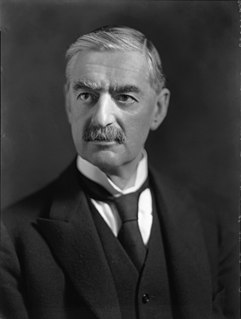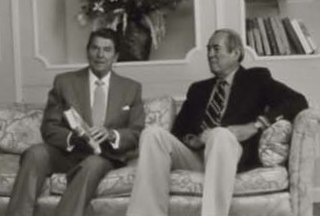A Quote by Patrick Henry
Do you remember any instance where tyranny was destroyed and freedom established on its ruins, among a people possessing so small a share of virtue and public spirit? I recollect none, and this more than the British arms makes me fearful of final success, without a reform.
Related Quotes
Public virtue cannot exist in a nation without private, and public virtue is the only foundation of republics. There must be a positive passion for the public good, the public interest, honour, power and glory, established in the minds of the people, or there can be no republican government, nor any real liberty: and this public passion must be superiour to all private passions.
This is a sad day for all of us, and to none is it sadder than to me. Everything that I have worked for, everything that I have hoped for, everything that I have believed in during my public life, has crashed into ruins. There is only one thing left for me to do; that is, to devote what strength and powers I have to forwarding the victory of the cause for which we have to sacrifice so much... I trust I may live to see the day when Hitlerism has been destroyed and a liberated Europe has been re-established.
Among the many misdeeds of the British rule in India, history will look upon the Act depriving a whole nation of arms as the blackest. If we want the Arms Act to be repealed, if we want to learn the use of arms, here is a golden opportunity. If the middle classes render voluntary help to Government in the hour of its trial, distrust will disappear, and the ban on possessing arms will be withdrawn.
Without freedom there will be no firearms among the people; without firearms among the people there will not long be freedom. Certainly there are examples of countries where the people remain relatively free after the people have been disarmed, but there are no examples of a totalitarian state being created or existing where the people have personal arms.
In this instance of the fire-arms, the Asiatic has been most improperly bracketed with the native. The British Indian does not need any such restrictions as are imposed by the Bill on the natives regarding the carrying of fire-arms. The prominent race can remain so by preventing the native from arming himself. Is there a slightest vestige of justification for so preventing the British Indian?
In all well-attempered governments there is nothing which should be more jealously maintained than the spirit of obedience to law, more especially in small matters; for transgression creeps in unperceived and at last ruins the state, just as the constant recurrence of small expenses in time eats up a fortune.
[Prudence] is the virtue of that part of the intellect [the calculative] to which it belongs; and . . . our choice of actions will not be right without Prudence any more than without Moral Virtue, since, while Moral Virtue enables us to achieve the end, Prudence makes us adopt the right means to the end.
Freedom from labor itself is not new; it once belonged among the most firmly established privileges of the few. In this instance, it seems as though scientific progress and technical developments had been only taken advantage of to achieve something about which all former ages dreamed but which none had been able to realize.
Is there no virtue among us? If there be not, we are in a wretched situation. No theoretical checks-no form of government can render us secure. To suppose that any form of government will secure liberty or happiness without any virtue in the people, is a chimerical idea, if there be sufficient virtue and intelligence in the community, it will be exercised in the selection of these men. So that we do not depend on their virtue, or put confidence in our rulers, but in the people who are to choose them.
More frightening to me than any policy or politician is the ease with which the public is played for fools with words. The latest example is the 'Employee Freedom of Choice Act,' a bill that will do away with secret ballot elections among workers voting on whether to be represented by a union. It is an open invitation to intimidation - which is to say, loss of freedom of choice.






























